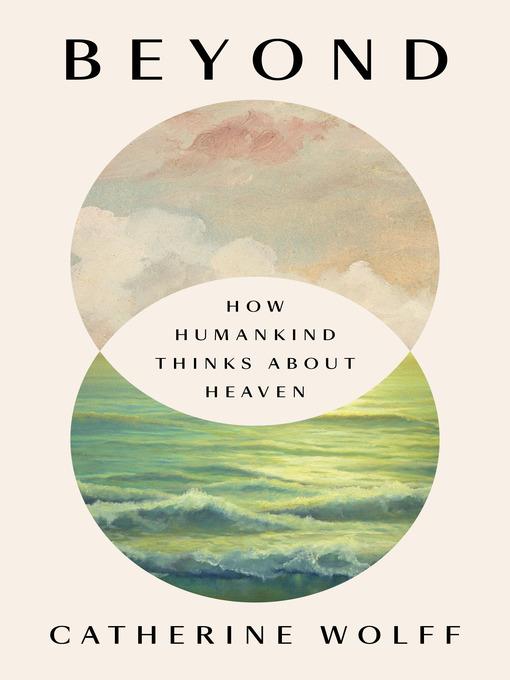
Beyond
How Humankind Thinks About Heaven
- اطلاعات
- نقد و بررسی
- دیدگاه کاربران
نقد و بررسی

March 29, 2021
Therapist Wolff (Not Less Than Everything) delivers an elegant if scattered study of the afterlife in this wide-ranging survey. Wolff charts a roughly chronological course from Mesopotamian mythology to contemporary spiritualist thought and along the way introduces readers to Buddhist conceptions of nirvana and enlightenment, Christian beliefs on heaven and damnation, the Hindu cosmos of worlds, Jewish writings on a “Promised Land flowing with milk and honey,” Muslim visions of a “lush” and “sensual paradise,” and many other conceptions of afterlives. Some beliefs merit entire chapters; others—notably Indigenous religions—warrant a paragraph or two. While Wolff provides numerous anecdotes (such as a high-tech New Age retreat in the foothills of the Blue Ridge Mountains), these granular stories cannot overcome the oversimplifications and inconsistencies. For instance, having previously declared that “none of us has ever met anybody who has returned from heaven with a verifiable report,” Wolff concludes by describing an “ultimate inn” where “we’ll be surrounded by our family and friends from earth, and some we’ve just met from the communion of saints.” Spiritualists of any stripe will find much to ponder.

April 1, 2021
A broad survey of global and historical views of the post-life spiritual realm. In this vast overview, writer and therapist Wolff wades deep into the murky waters of heaven, the afterlife, and unseen planes of being. The sweeping narrative--designed for lay readers, some of whom may be overwhelmed by its scope--introduces countless intriguing concepts, from near-death experiences to reincarnation. With eloquent reporting on various cultures and faiths, the author presents her work as "a history of hope" and an examination of "the ongoing collective exercise of the human imagination." Wolff begins with the prehistoric evidence for belief in what may be termed the afterlife, or at least a world beyond the present, physical one. She then moves on to ancient religions, focusing not only on doctrines of life after death (most famously in ancient Egypt), but also on poetic views of the world of the dead, as captured in such works as the Odyssey and the Aeneid. Moving on to Judaism, Wolff admirably captures the ambiguity involved in Jewish teachings on the afterlife. This sets up her lengthy, detailed examination of Christianity, as she tracks views on the afterlife through religious figures (Paul, Augustine, Julian of Norwich, Swedenborg, etc.) and artists and writers (Dante, Blake, Bunyan), all against the backdrop of the proliferation of significant religious movements such as the Reformation. In the educative section on Islam, Wolff notes how Allah is "an all-powerful and transcendent but also an interested god, concerned with humans, capable of acting in history with mercy and justice." Hinduism and Buddhism share a section, in which the author demonstrates that whereas the liberal West views all religions as heading toward a common end (a tranquil afterlife), Eastern religions can have thoroughly different concepts of what that final end may look like. The concluding section, "We Shall Not Cease From Exploration," looks to the future of our unceasing search for meaning. A soulful, far-reaching primer on what lies beyond.
COPYRIGHT(2021) Kirkus Reviews, ALL RIGHTS RESERVED.

May 1, 2021
Wolff's sprawling book could almost function as a world religions text. Divided into seven parts, it begins with historical synopses of how various cultures regarded the possibility of an afterlife. Wolff discusses how the concept of an afterlife was foreign to primal religions, because life was everywhere and ""everywhen,"" then turns to Judaism, in which Enoch and Elijah are delivered to paradise. The rise of purgatory is discussed in the Christianity segment. In Islam, Jesus, not Muhammad, will return at world's end. Hinduism believes an individual soul (atman) unites with the world's soul (Brahman). Nirvana is the highest end in Buddhism. Wolff notes similarities across faiths, such as the image of crossing a bridge and Islam's barzakh as a kind of purgatory. She later discusses spiritualism, s�ances, and near-death experiences, and devotes space to apocalyptic groups like the Branch Davidians and Heaven's Gate and their yearning for a beyond. This ""history of hope"" is an enlightening read for those curious about what may happen after we die, whether they're people of faith or not.
COPYRIGHT(2021) Booklist, ALL RIGHTS RESERVED.




دیدگاه کاربران